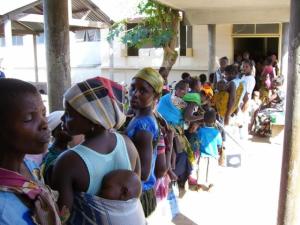Ensuring Quality Standards for Malaria Diagnostics
Malaria accounts for a high burden of morbidity and mortality in all parts of Mozambique especially among children. The disease is particularly prevalent in the rural areas, where almost 1 in 2 children under five have or have had malaria
To lower the high disease burden and reduce mortality rates, the Ministry of Health and WHO conducted a training course for a core team of malaria laboratory technicians from the National Reference Laboratory.
The training provided the laboratory scientists with the microscopy skills required for site training and quality assurance supervision in hospitals with microscopy diagnostics. Continuous onsite quality assessments are important because they can improve the accuracy of malaria diagnoses done by microscopy ensuring that patients receive appropriate treatment.
WHO recommends that parasites must be detected in the blood before treatment is initiated. Early and accurate diagnosis is therefore crucial to provide patients with the appropriate treatment. Continuous high-quality malaria diagnosis is essential as misdiagnosis can lead to disease and death, and contribute to drug resistance. Furthermore, accurate diagnoses are vital for precise surveillance data.
- This training is an important achievement, says the training facilitator, Dr Emanuel Oumayamu. Now Mozambique has a team of national experts who can pass on knowledge and skills to colleagues throughout the country.
The accredited team will conduct site-visits to health facilities with microscopy diagnostics to undertake quality assurance tests. This means that laboratories are regularly monitored on their performance to make sure they are living up to WHO standards. The team will also provide trainings for laboratory staff in the provinces.
The same team of microscopist will be trained again in 2014 to become national experts according to the WHO definition. This will provide Mozambique with a team of specialists who can continue to support provinces in fighting malaria.
Demographic Health Survey 2011



